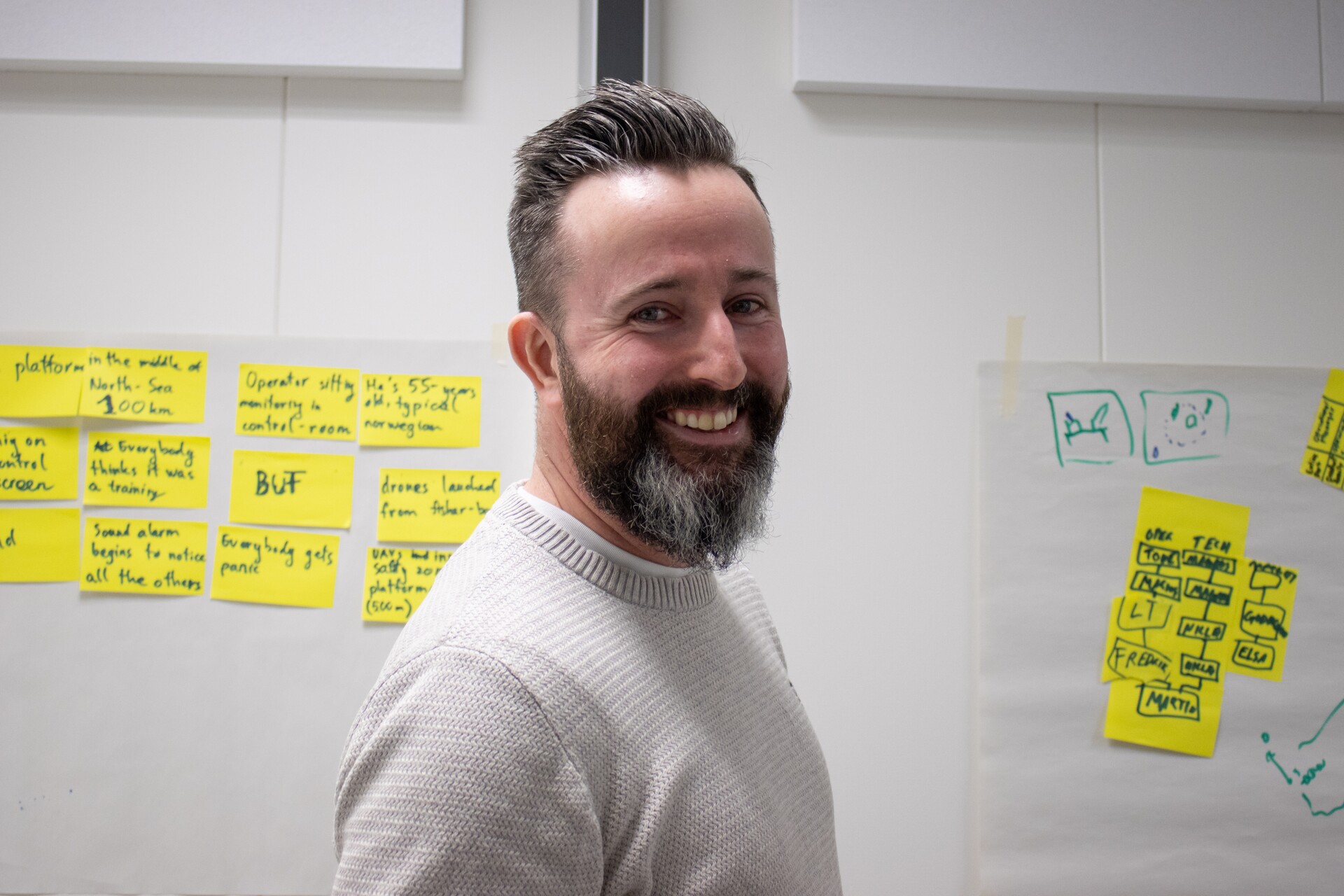
Systems Thinking
Kongsberg - Part time
Interested in studying for a masters' degree whilst working? Or would you like to participate in a single course for Professional Development?
-
Closing dates: 21.06.2024
Study facts
-
Campus: Kongsberg -
Study level: Further education -
Progression of study: Part time -
Start up: Spring 2024 -
Teaching model: Session-based -
Credits: 0 or 7,5 -
Charge: NOK 20.000/25.000 (without or with credits) -
Closing dates: 21.06.2024 -
Semesters: 1 -
Teaching Language: English
Dates
- Week 26; 24.06.24-28.06.24
What is Systems Thinking?
This course presents introductory concepts, methods, and tools required for adopting and applying a systemic philosophy of thinking in the realm of complexity. It is designed to educate students a new paradigm of problem solving in which collective benefits of the entire system is considered in evaluations in addition to those of its stakeholders. Emphasis is on understanding complexity through the lens of systemic phenomena as well as shaping forces of the system and their dynamics. Students will learn how to think critically about complex problems through analysing influential components and modelling dynamics of interactions within the ecosystem from which the problem is emerging. In order to achieve the objectives of this course, students will learn applications of qualitative approaches such as lingual tools and semantics of systemic languages as well as those of quantitative methods such as systems dynamics and agent based modelling. The course accompanies many practical in class assignments, case study reviews, audio and video supplements to the core of discussions, and group discussions. The course is designed for graduate-level students who are familiar with concepts of modelling and requires a final project in addition to completion of in class assignments.
Why take this course
This course is recommended for any problem solver who deals with complexity and tries to find a solution for a complex problem. Large-scale and complex problems are often the product of numerous interactions among variety of stakeholders. In other words, they are the emergent property of their environment. Understanding stakeholders of such environments, their interests, the way they impact the dynamics of forces within their ecosystem, and their patterns of behaviour are essential for framing and ultimately formulating the right problem. This knowledge will consequently enable problem solvers in finding a universally applicable solution, which is beneficial not only for some of the system’s stakeholders but also the entire ecosystem beyond its geographical and temporal frames, collectively.
Who should take this course?
This class is recommended for graduate students and professionals, who wish to learn a new critical thinking paradigm along with its application methodologies, regardless of their fields and backgrounds. The school of thought covered in this course helps both academicians and practitioners to see beyond classic analytical approaches and empowers them to see any given complex problem in entirety within its environmental context. The high-level leaders and manager from both private and public sectors, from both service and industry, particularly those who are in charge of socio-technical, societal, and large-scale systems will benefit the most from this course and find it informative and applicable. Beyond that, the course will open new horizons in understanding complexity for any thinker who involves in solving complex problems.
Prices
The price for attending a course depends on whether you take the course for credit or not. To get credit for the course, you need to hand in a written assignment.
- Alternative 1: Attendance only kr. 20.000,-
- Alternative 2: Attendance and written assignment kr. 25.000,-
For alternative 2, the price also includes supervision and grading of the written assignment.
Instruction
Master students and others taking courses for credit will work on a written assignment which is due 10 weeks after the end of the course. A completed course with an approved written assignment will give 7.5 study points. Full attendance during the intensive course week is obligatory. The maximum amount of hours that can be missed is 4, duly justified.
Registration
The registration deadline for each course is 2 weeks before the course starts.
We accept registrations also after the deadline, provided there are available seats. Each course has a limited number of seats, so please sign up early. We reserve the right to cancel courses with too low participation.
Admission requirements
A bachelor’s degree in engineering or exact sciences, or similar
A bachelor’s degree in natural science or technology provided that it contains at least 20 ECTS mathematics and/or statistics or physics
A cumulative grade point average of C or above
You must also fulfill the English requirements
The admission requirements are founded on the regulations regarding admission

